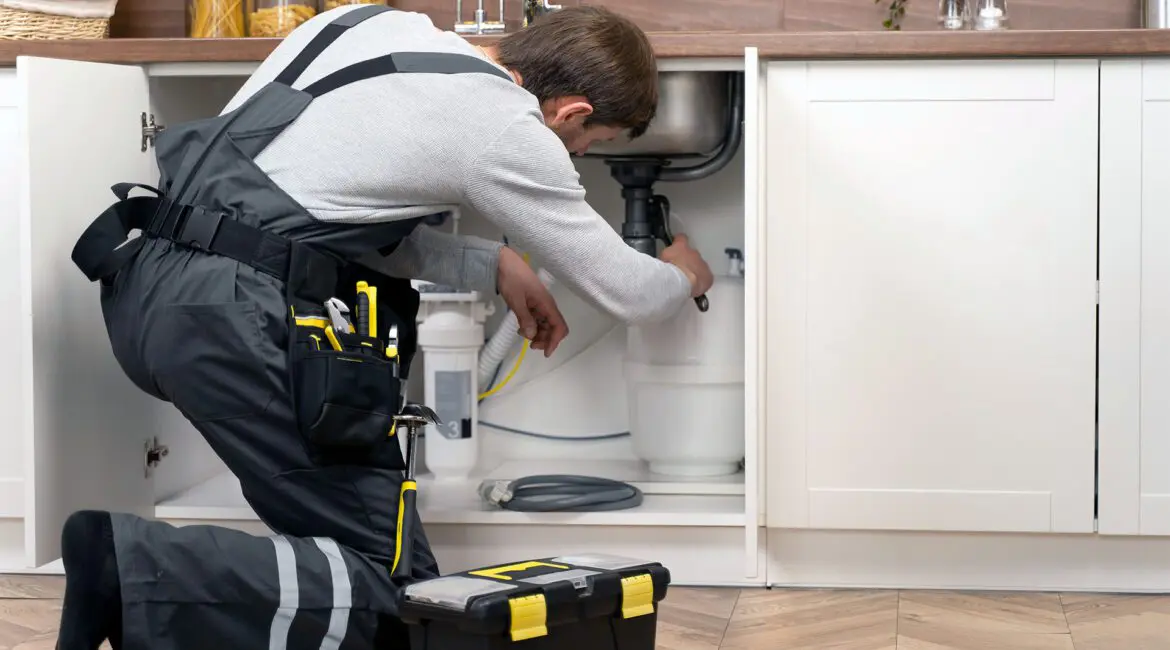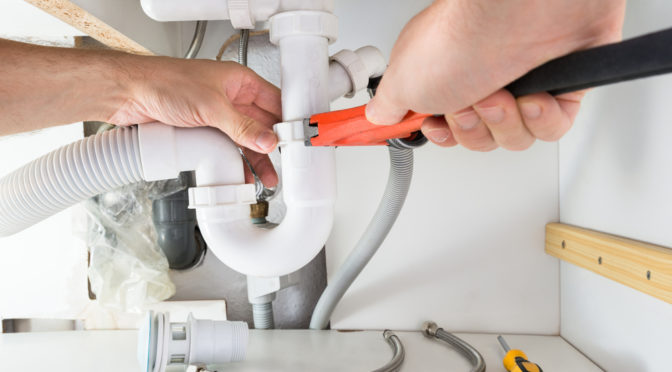They are making several good observations regarding Plumbing Emergencies: Tips on What To Do Before as a whole in the content down the page.

Plumbing emergency situations can strike any time, creating stress and anxiety and possible damages to your home. Whether it's a burst pipe, a clogged drain, or a leaking faucet, knowing just how to take care of the scenario up until an expert plumbing technician shows up can save you from further complications. This write-up gives necessary emergency situation plumbing suggestions to help you mitigate damages and gain back control during a plumbing crisis.
Shut off the Supply Of Water
The primary step in any type of plumbing emergency is to shut off the supply of water. For localized issues, such as a dripping tap or commode, shut off the valve near the fixture. In the case of a major leakage or ruptured pipeline, find your home's main water shut-off shutoff and turn it off right away. Knowing the location of these shutoffs in advance can save beneficial time throughout an emergency.
Shut down Your Hot Water Heater
In certain emergency situations, such as a burst pipe, it's important to turn off your water heater. This stops overheating or damages to the system when water stops moving. Turn off the power supply to the hot water heater (electric or gas) and allow it cool off to avoid possible risks.
Momentarily Stop a Burst Pipeline
A burst pipeline can lead to substantial water damage in mins. To reduce the problem:
Call a professional plumbing technician instantly to resolve the problem completely.
Have an Emergency Plumbing Kit
Prepare a standard plumbing emergency situation package to deal with small issues efficiently. Your package should consist of:
Having these devices accessible can make a considerable difference in your ability to take care of emergency situations.
Unclog Drains Safely.
A stopped up drainpipe can be a frustrating and untidy problem. Below's how to tackle it:.
If these approaches don't function, prevent using too much pressure, as it may get worse the obstruction.
Manage Overflowing Toilets.
An overruning bathroom can cause prompt turmoil. Here's what you need to do:.
Address Little Leaks with Temporary Fixes.
Small leakages can swiftly end up being significant troubles if left untreated. Utilize these temporary solutions up until professional aid gets here:.
While these solutions aren't irreversible, they can assist minimize water loss and damages.
Manage Frozen Pipes Meticulously.
In chillier climates, icy pipes are a common emergency situation. If you presume a frozen pipeline:.
Know When to Call a Professional.
While quick fixes can aid briefly, certain pipes problems require prompt expert attention. Call a plumber if:.
Immediately getting in touch with a specialist guarantees the concern is solved correctly and protects against further difficulties.
Avoid More Damage.
Taking fast action to decrease damage can conserve you time and money in the future. Right here's just how:.
Final thought.
Pipes emergencies can be frustrating, yet with the best expertise and tools, you can handle the scenario effectively up until aid arrives. By shutting off the water, addressing small leakages, and using short-lived fixes, you can lessen damage and keep your home safe. Bear in mind, these tips are momentary solutions; always get in touch with a certified plumbing technician to handle the root cause of the issue. Prep work and fast thinking are your finest allies in any kind of plumbing emergency.
8 Helpful Tips for Managing Plumbing Emergencies at Home
If your plumbing system hasn’t failed once, wait for it because almost everyone has a story to tell. Sometimes, it could be simple emergencies such as a leaking pipe, a blocked cistern, or even a big burst pipe. In situations like this, you need to have some handy tips to save you some money and from possible damages.
Take care of minor issues early.
Sometimes, you could have avoided an emergency by taking proactive measures while it was still early. Some major plumbing emergencies can be a result of an ignored minor issue. We recommend that you have items like plumbing tapes and other related items. A plumbing tape can allow you to manage minor leaks before the plumber arrives.
Cut off the water supply.
This tip is essential in almost any type of leakage problem. For problems like minor leakages in the toilet or kitchen, turn off the supply that takes water to the affected pipes. If the leakage is a major pipe, you must shut off the supply valve to the entire building. This will help you avoid flooding your home and neighbors if you share a flat.
Know your plumbing system
Folks typically move into a new apartment without understanding the water supply around the building. This can prove disastrous if a water emergency arises and the plumber is far away. The previous tip will prove useless if you don’t practice this one. More importantly, know where your water shut-off valve is located – you’ll need that knowledge to prevent potential home floods.
Have some common handy tools
There are lots of plumbing emergencies that you can handle without hiring a plumber. That’s why you must keep some tools available always. Some tools that you can use to fix simple plumbing emergencies easily include plumbing tapes, screwdrivers, thread seal tapes, plungers, pliers, tape measures, and rubber gloves.
Insulate your pipes from cold
You’ll save yourself from many plumbing expenses if you protect your water pipes from the cold. This is because of the harmful effects that cold weather can have on your pipes. During winter, your pipes can burst from being overly expected to freezing temperatures. So, make sure insulators are there to keep the pipes working correctly.
Avoid practices that will clog your toilet.
Many people indulge in practices that can damage the plumbing system of the entire building. One of these is when they use their toilet to dispose-off garbage. They flush all kinds of things, such as paper towels, bandages, hairs, female sanitary products, etc., down the toilet. This will block your toilet in the long run, incurring unnecessary expenditures. Dump such waste in the trash instead.
Check your dials regularly.
Sometimes, there could be leakages in your home without noticing them in time. So, constantly monitor your water meter dial. If the dial is reading when there is nobody using water, this is an indicator that there is leaking. Check for leaks immediately. Call a plumber as soon as possible if you can’t find any.
https://www.constructionplacements.com/8-helpful-tips-for-managing-plumbing-emergencies-at-home/

We were made aware of that article on from someone on a different web property. Sharing is good. You never know, you may be doing someone a favor. Thanks a bunch for your time. Revisit us soon.
Schedule Your Service